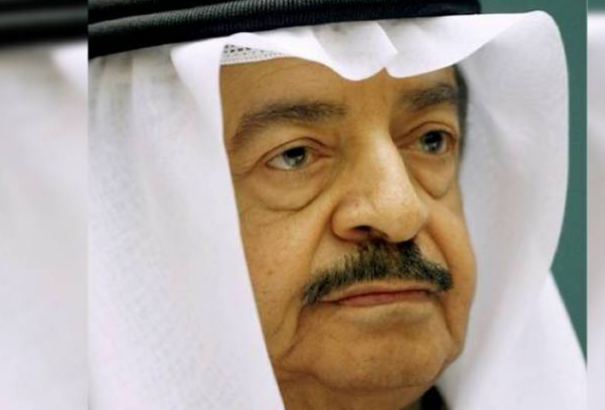Manama (Web Desk): The long-serving Prime minister of Bahrain Sheikh Khalifa bin Salman al Khalifa died at the age of 84 on Wednesday.
According to Bahrain’s state-run news agency, Sheikh Khalifa passed away at Mayo Clinic Hospital in the United States (US)
The island kingdom’s King Sheikh Hamad bin Isa Al Khalifa has announced official mourning for a week during which flags will be flown at half-mast.
The burial ceremony will take place upon the return of his body and as per the pandemic situation, the funeral will be limited.
Sheikh Khalifa bin Salman al Khalifa, who was born on November 24, 1935, began to attend his father’s royal court at the age of seven along with his elder brother, Prince Issa, aforeign news agency reported.
As per a foreign news agency, He was named in 1970 as the head of the state council, the executive branch of government which became the council of ministers after independence from Britain.
Sheikh Khalifa conducted difficult negotiations with the Shah of Iran, Mohammad Reza Pahlavi, before independence over Shiite Iran’s claims to the islands.
A referendum to determine Bahrain’s future resulted in an overwhelming vote in favour of independence under the rule of the Sunni Al-Khalifa dynasty, despite the sizeable Shiite population -- whose size is disputed by the government to this day.
After independence, Sheikh Khalifa’s government faced strong protests by leftist political groups, which demanded the legalisation of trade unions, resulting in large-scale arrests.
In 1972, elections were held for a constituent assembly which drafted Bahrain’s first constitution the following year.
The first parliamentary elections were held in December 1973, but Sheikh Khalifa’s government dissolved the chamber in August 1975 after it refused to pass a state security law giving the government wide powers of arrest and detention without trial.
Political unrest flared again in the early 1980s, and in late 1981 the government announced it had foiled an Iranian-backed coup attempt.
Prince Khalifa strove for many years to establish Bahrain as a regional financial hub. Unlike other Gulf states, the kingdom has only modest oil resources.
Working closely with his brother, the late emir Sheikh Issa bin Salman al-Khalifa, he favoured strong ties with Washington.
Ties have since continued to grow, with Bahrain now hosting the US Navy’s Fifth Fleet as one of Washington’s most trusted allies in the region.
Following Iraq’s 1990 invasion of Kuwait, Bahrain witnessed renewed pro-democracy protests coupled with pressure from the United States and Britain.
Shiite-led demonstrations intensified in 1994, with protesters demanding the restoration of the elected parliament, the return of political exiles and a more equitable distribution of wealth.
The unrest, which claimed at least 38 lives, lasted until 1999, when King Hamad ascended the throne, initially as emir, and initiated reforms which turned Bahrain into a constitutional monarchy and reinstated the elected parliament in 2002.
But protesters were back on the street in February 2011, taking their cue from Arab Spring uprisings, demanding a "real" constitutional monarchy, with an elected premier to replace Khalifa.
Although the government quelled the protests after one month, the country continues to face political repression, with several opposition chiefs behind bars. At least 89 people were killed in the unrest.
Sheikh Khalifa was one of the world’s longest-serving prime ministers who led his island nation’s government for decades and survived the 2011 Arab Spring protests that demanded his removal over corruption allegations.
Prince Khalifa was married and has three surviving children, sons Ali and Salman and daughter Lulwa. Another son, Mohammed, died previously.


